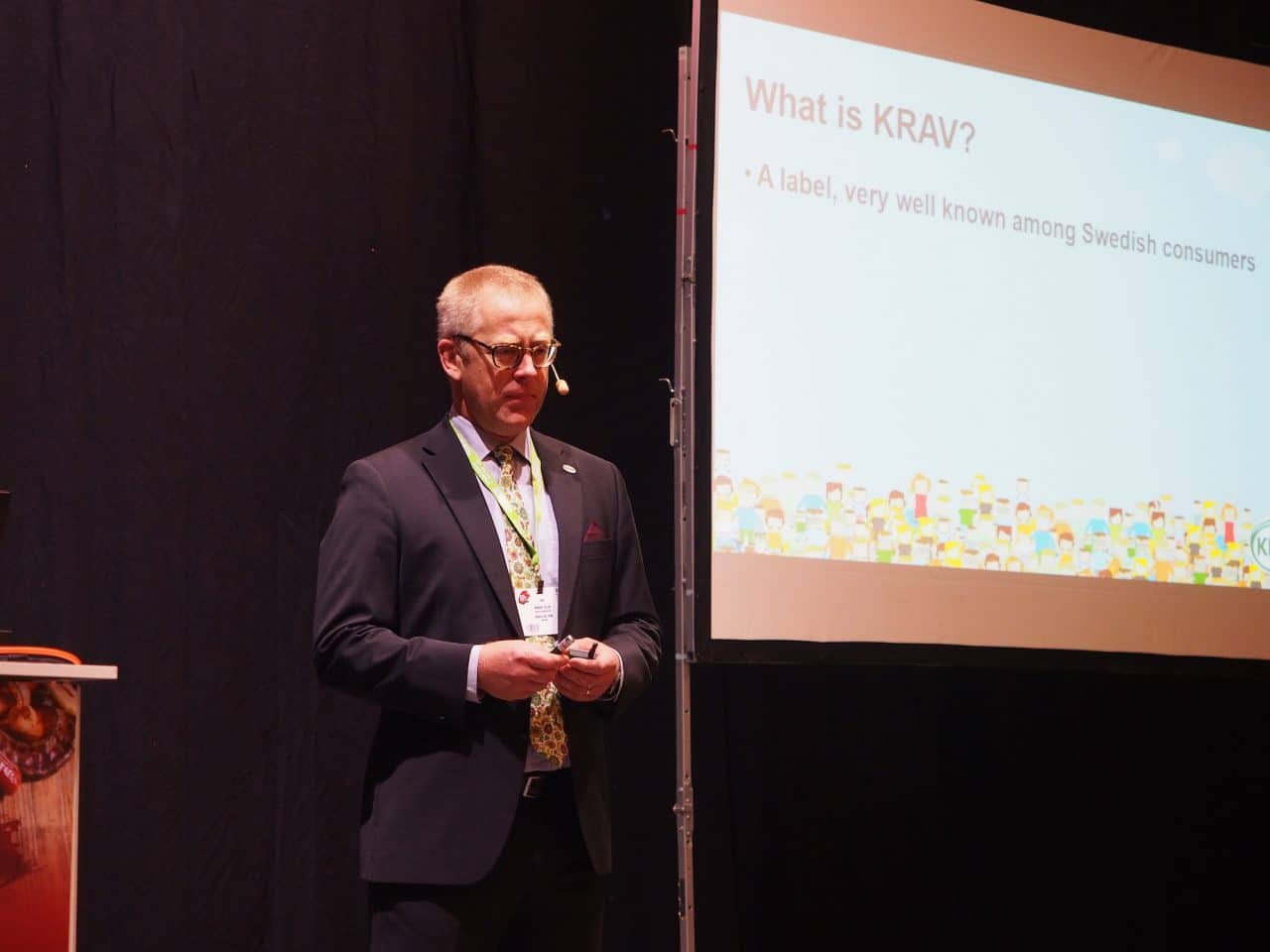Sweden has doubled the number of certified organic restaurants in the country following an initiative launched last year by the Swedish organic body KRAV.
Around 1,000 restaurants in Sweden now have organic certification and KRAV expects this to rise to 1,500 by the end of the year.
KRAV applies a three-tier system for restaurants. Level One requires that 25%+ of total ingredients purchase must be organic, Level Two requires 50%+ and Level Three demands at least 90%. Twenty-five kitchens are now certified to the demanding Level Three standard, spanning everything from fine dining restaurants to kitchens at day care providers.
Speaking this week at the Nordic Organic Food Fare, Johan Cejie, sales manager at KRAV, said that a vibrant organic restaurant scene had big benefits for the wider organic movement. “You might ask, why restaurants? – they’re not part of the EU regulation. But, actually, restaurants themselves are asking for the credibility of recognized standards. Sometimes it’s a grey sector, so certification gives real meaning to what individual restaurants are doing.”
Cejie says that restaurants often anticipate that certification will be bureaucratic and involve multiple hoop jumping. But at the entry point level at least it’s fairly straightforward and owners and staff typically comment afterwards about how easy the process is. Getting to Level two “requires some brainwork” and making it to Level Three “needs a dose of real passion too”.
Mentoring and a strong support structure are built into the programme, which has a team of three KRAV staff dedicated to it. “Continuous improvement and staff training are important because well-meaning staff sometimes give incorrect information which can damage the whole movement.”
This month, the first Michelin starred restaurant – Volt, in Stockholm – gained organic certification. “It’s really important for the image of organic, if it’s seen to be top-notch and competitive,” says Cejie. “Certification can be a conversation starter too,” he adds. “Organic restaurants like to tell people they are organic, they’re natural organic ambassadors! And very soon their customers are talking about it too.”
“When a school kitchen gets certified and stays in budget, then you have busted the myth about organic being expensive”
But it’s not all about fine dining. Two thirds of the organic certified restaurants in Sweden are public kitchens. “When a school kitchen gets certified and stays in budget, then you have busted the myth about organic being expensive. You’re showing that it’s not about being expensive, it’s about making good choices with what you cook with. The PR value of that message cannot be overestimated.”











